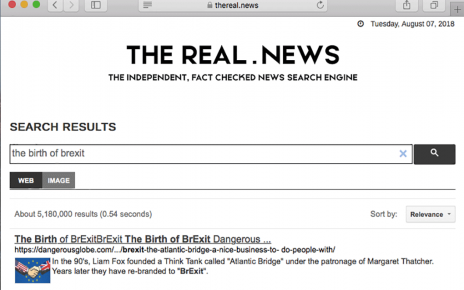31st October 2022 – People and Power – Ido Dijkstra
‘Big Brother’-wet van Kaag opent deur naar totale financiële controle.
The Dutch cabinet is the first in Europe to submit a bill that obliges banks to monitor all transactions above 100 euros of all Dutch citizens. Minister of Finance Sigrid Kaag (Party – D66) believes this is necessary in the context of combating money laundering.
Critics call the law a far-reaching invasion of the privacy of citizens. “The Netherlands is at the forefront of creating opportunities to violate fundamental rights,” says Ellen Timmer, a corporate law attorney who specializes in privacy issues.
The bill submitted by the government on 21 October states that banks may be required to monitor all banking transactions of all Dutch account holders in one centralized database, using algorithms. There is only one exception for transactions under 100 euros and then only for consumers. “Only small payments from consumers to companies and to other consumers cannot be used for crime detection. This exception does not apply to, for example, accounts of sole proprietorships and general partnerships”, explains Ellen Timmer, who works at the law firm ‘Pellicaan’.
The five largest Dutch banks ABN Amro, ING, Rabobank, Triodos Bank and de Volksbank have already joined forces in the Transaction Monitoring Netherlands (TMNL) partnership, to which other banks can also join. Timmer is watching the developments surrounding the bill with suspicion.
“It strikes me that, according to the explanatory memorandum to the bill, it is urgently necessary, according to the cabinet, that the citizen service numbers (BSN) of all Dutch citizens must be processed by TMNL. The government assumes that a lot of money is laundered by consumers. Or that they even finance terrorism. It is a pity that the government does not explain this in more detail.” It is true that the government has the task of fighting crime and terrorism, but according to many critics the question is whether this is being done in the right way. “You would expect banks to look for wealthy oligarchs and crooked big corporations who are evading taxes and violating citizens’ rights. The bill makes it seem as if all consumers are under suspicion,” said Timmer.
Alarm bells are also ringing at the Dutch Data Protection Authority (AP). “The proposed monitoring really goes too far,” said AP director Katja Mur in a statement. “All your payment behaviour will soon be collected centrally and monitored by algorithms, together with all transactions of all other bank customers in the Netherlands. This poses risks to your privacy. Your payment details display your entire pattern of trades and movements. For example, whether you spend money on a political party, religious institution, or psychologist.”
The Council of State, the government’s main advisory body, is also gently applying the handbrake. “The Advisory Department endorses the aim of the bill: combating money laundering and terrorist financing. It recognizes that so-called gatekeepers (such as banks) play an important role in preventing abuse of the financial system. However, two of the proposed measures lead to a serious infringement of fundamental rights of citizens and companies that protect confidential data and privacy. As important as the fight against money laundering and terrorist financing is, the question with these measures is whether the end justifies the means. These resources go too far in the drafting of the bill. This involves the exchange of information in the joint monitoring of bank transactions and in customer due diligence.”
The Privacy First Foundation speaks of “a banking dragnet” and “calls on everyone to take a critical look at the bill and to address members of the House of Representatives on their responsibility not to adopt legislation that violates fundamental rights.” Timmer is concerned that the cabinet appears to be ignoring the advice of the Dutch Data Protection Authority and the Council of State. “The risk is that the law opens the door to unprecedented mass surveillance by banks. The Rutte cabinet is playing with fire, (in terms of fundamental rights)” she concludes.
The bill seems to be a new step in a trend of increasing control over financial traffic from governments. Last week, for example, at an IMF meeting in Washington, Queen Máxima again pleaded for the Central Bank Digital Currency (CBDC), a digital, programmable currency that governments and central banks want to introduce in due course.
Discouraging the use of cash also fits in with this trend. The Dutch Data Protection Authority warns against increasing scrutiny if the law is passed. “There is a danger of discrimination and exclusion. We have seen before that algorithms can stigmatize and pigeonhole people. The question is whether banks will soon be guided mainly by what a computer tells them,” says Katja Mur.
This piece is reproduced with the kind permission of the Netherlands news service, The Andere Krant, it concerns a proposed bill to change the law in the Netherlands to make it compulsory for Banks to track all financial transactions above 100 euros. It comes at a time when the major banks in the Netherlands have handed over the control of all cash machines and cash handling to third party managers like Geldmat.
We would like to thank both The Andere Kant and their author Ido Dijkstra for allowing us to use their work.
The original NL piece is posted here.




